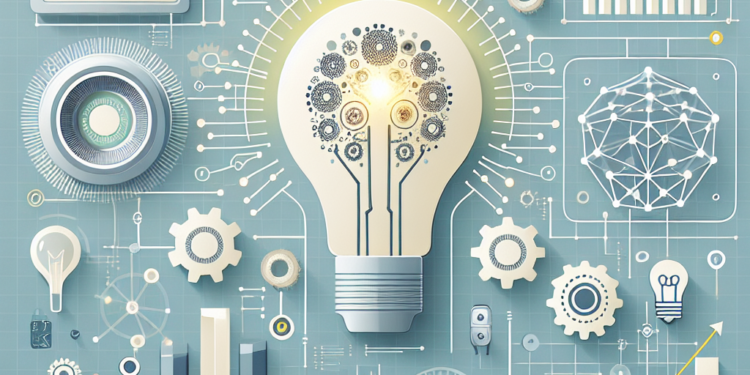Artificial Intelligence (AI) has become an integral part of modern technology and is being implemented in various industries to improve efficiency, productivity, and customer experience. As AI continues to evolve, businesses are seeking ways to optimize their AI systems for better performance and results. Here are some tips and tricks for optimizing AI systems:
1. Understand the data: Data is the foundation of any AI system, so it is important to understand the data that is being used to train and feed the AI algorithms. Make sure the data is clean, relevant, and up-to-date to ensure accurate predictions and insights. Data profiling and data cleansing tools can help in identifying and fixing any issues in the data.
2. Feature engineering: Feature engineering is the process of selecting, extracting, and transforming features from the data that are relevant to the problem being solved. By creating new features or combining existing ones, you can improve the performance of the AI system. Experimenting with different feature combinations and transformations can help in finding the best set of features for the AI model.
3. Optimize algorithms: There are various AI algorithms available for different types of problems, such as regression, classification, clustering, and more. It is essential to choose the right algorithm for the task at hand and optimize its parameters for better performance. Tuning hyperparameters, such as learning rate, regularization, and batch size, can significantly improve the accuracy and efficiency of the AI model.
4. Use advanced techniques: Advanced techniques, such as transfer learning, ensemble learning, and deep learning, can be used to enhance the capabilities of AI systems. Transfer learning allows you to use pre-trained models and adapt them to new tasks, saving time and resources. Ensemble learning combines multiple models to improve the overall prediction accuracy. Deep learning, with neural networks, can handle complex patterns and large datasets for better predictions.
5. Monitor and evaluate: Monitoring the performance of AI systems is crucial to identify any issues or anomalies and make necessary adjustments. Set up metrics and key performance indicators (KPIs) to measure the accuracy, precision, recall, and other performance indicators of the AI model. Regularly evaluate the model’s performance against the KPIs and retrain the model if necessary.
6. Automate workflows: Automating workflows using AI systems can streamline processes, reduce manual effort, and improve efficiency. Implementing automation tools, such as robotic process automation (RPA), can help in performing repetitive tasks faster and with fewer errors. By integrating AI systems with existing workflows, you can create a seamless and efficient process.
7. Optimize hardware: AI systems require powerful hardware, such as GPUs and TPUs, to run complex algorithms and process large datasets efficiently. Make sure the hardware used for training and deployment of AI models is optimized for performance and scalability. Consider using cloud services or distributed computing platforms for high-performance computing and scalability.
8. Implement feedback loops: Implementing feedback loops in AI systems allows them to improve over time by learning from past experiences and user interactions. Collecting feedback from users, monitoring outcomes, and updating the AI model based on new data can help in enhancing its performance and relevance. Continuous learning and adaptation are key to optimizing AI systems for better results.
9. Ensure security and privacy: Security and privacy are critical aspects of AI systems, especially when dealing with sensitive data or making critical decisions. Implement robust security measures, such as encryption, access controls, and secure coding practices, to protect data and prevent unauthorized access. Ensure compliance with data protection regulations, such as GDPR and HIPAA, to maintain trust and credibility with users.
10. Collaborate with experts: Collaborating with domain experts, data scientists, and AI specialists can bring new perspectives and insights to optimize AI systems. Seek input and feedback from experts in the field to identify potential pitfalls, improve algorithms, and validate the results. By working together with a diverse team of experts, you can leverage their knowledge and expertise to optimize AI systems for better performance.
In conclusion, optimizing AI systems requires a combination of data, algorithms, techniques, monitoring, automation, hardware, feedback loops, security, and collaboration. By following these tips and tricks, businesses can improve the performance, efficiency, and accuracy of their AI systems for better results. Keep evolving and experimenting with new approaches to stay ahead in the rapidly changing landscape of AI technology.













